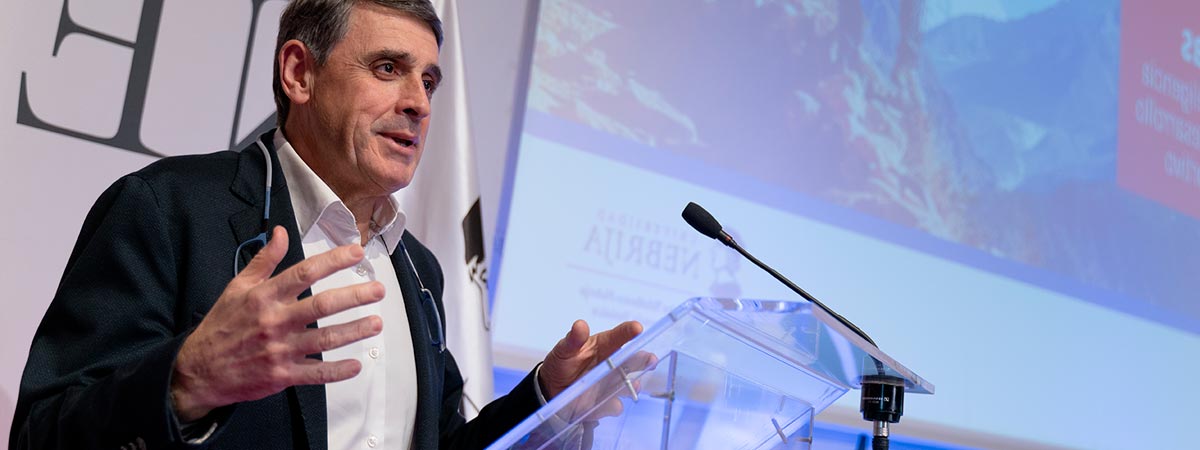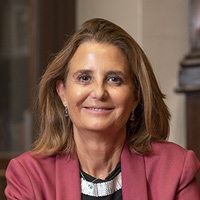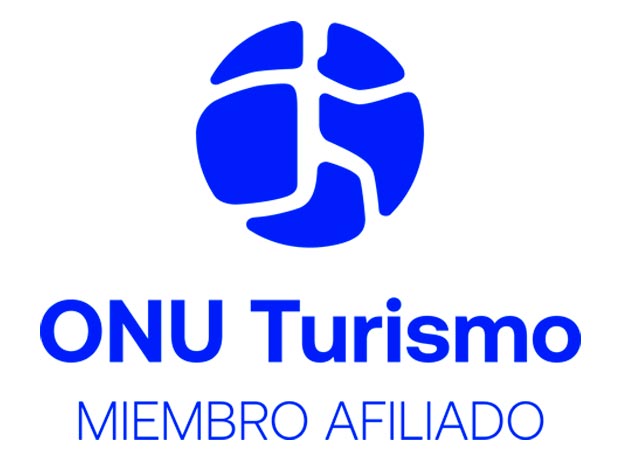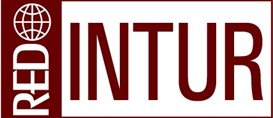Master’s Degree in Strategic Management of Smart Tourism Destinations

Prepare to Lead the Future of Tourist Destinations
The Master's in Strategic Management of Smart Tourism Destinations provides comprehensive training at the intersection of destination management, technology, sustainability, and innovation. This program equips students with the necessary skills and knowledge to spearhead the transformation of destinations towards the DTI model.
Our curriculum, designed in collaboration with the world's leading experts in DTIs, is at the forefront of the latest trends. It caters to the current demands of professionals from the most advanced tourist destinations. In addition to the expertise of our faculty, we offer the development of exclusive real-world case studies and guest lectures from industry leaders. This approach not only connects our students with the realities of tourist destinations but also enables them to develop their own network of contacts.
Do not miss this opportunity to learn from the best - the same professors, researchers, and professionals who are pioneering the development of the DTI model in Spain and around the world.
Leveraging Technology for Tourism
In an interview with Natalia Bayona, the Director of Innovation, Education, and Investments at the World Tourism Organization (UNWTO), she discusses the significance of implementing technological solutions in the tourism sector. These solutions aim to broaden reach, enhance customer experiences, and maintain the sector's status as the leading employer of young individuals and women globally.
Memberships
Why study for the Master’s Degree in Strategic Management of Smart Tourism Destinations

Innovative Curriculum
Our program offers advanced training in Digital Tourism Initiatives (DTIs) and the use of state-of-the-art technological tools. These resources aid in successfully navigating the dual digital and sustainable transformations required in the tourism sector.

Learn from the Best
Our program features interactive master classes, case studies, problem-solving sessions, practical scenarios, projects, and challenges. We maintain extensive connections with experts, institutions, and destinations that are leading the way in DTIs.

Two Itineraries
Professional itinerary, which facilitates the process of entering the labor market through academic internships, and research itinerary, which allows you to continue with doctoral studies. At Nebrija University, we host the Interuniversity Doctorate in Tourism and the Smarttour-INN Research Group.
Curriculum
All our degrees and curricula have been developed in accordance with the new guidelines set by current legislation.
The student must take 60 credits
First Semester 30 ECTS
- 6 ECTS | Principles of Smart Tourism Destinations
- 6 ECTS | Innovation and Transformation in the Tourism Industry
- 6 ECTS | Applied Statistical and Computational Fundamentals in Tourism
- 6 ECTS | Governance Strategies for Smart Tourism Destinations
- 6 ECTS | Sustainability Practices in Smart Tourism Destinations
Second Semester 30 ECTS
- 6 ECTS | Advanced Technologies for Designing Experiences
- 6 ECTS | Advanced Technologies for Managing Smart Tourism Destinations
- 6 ECTS | Elective 1
- 6 ECTS | Elective 2
- 6 ECTS | Master’s Final Research Project
Elective Subjects
- 6 ECTS | Elective 1: Change management and resilience in tourist destinations
- 6 ECTS | Elective 2: Professional Academic Internship
- 6 ECTS | Elective 1: Tourism research methodology
- 6 ECTS | Elective 2: Digital research methodology and tools in social sciences
Professional Itinerary:
Research Itinerary:
More Academic Information
Degree:Master's Degree in Continuing Education in Strategic Management of Smart Tourism Destinations
Learning Center:School of Economics and Business
Branch of knowledge: Tourism Department
Places Offered: 120
Teaching Type: Classroom attendance - Online
Languages: Spanish and English
Competences
Knowledge or content- K1. Know the fundamentals of tourism as well as understand its transversal nature through the study of its different dimensions: economic, spatial, social, cultural, environmental, legal, etc.
- K2. Understand the tourism system, the market and the agents involved, as well as their interrelationships and behaviors and the importance of tourism intelligence.
- K3. Know from a theoretical and practical point of view the lexical, syntactic and discursive features of foreign languages aimed at tourism.
- K4. Know and explain the theoretical and practical concepts related to the creation, management and direction of tourism companies at the national and international level.
- K5. Know the techniques and methods for the economic and financial analysis of tourism companies.
- K6. Know the management, operations and processes of tourism companies (accommodation, intermediation, event organization, etc.) and the value of transformation and data.
- K7. Understand the management functions of tourism organizations and their different areas and departments.
- K8. Know from a theoretical and practical point of view the mechanisms for the adequate management of tourist destinations, from tourism policy, planning, development models, resources, tourist typologies, impacts generated by tourism, the sustainability of destinations, the ecological and digital transition.
- K9. Know the fundamental concepts of commercialization, and marketing and the creation of experiences that apply to the tourism field (companies and destinations).
- K10. Know the techniques of innovation, digitalization and new technologies that are applied in products, services and tourist destinations.
- S1. Interpret qualitative and quantitative data relevant to decision-making in the tourism industry.
- S2. Apply sustainable management tools and models for planning and managing tourist destinations.
- S3. Utilize internal and external analysis techniques and financial methods for the creation, management, and direction of tourism companies.
- S4. Communicate fluently in foreign languages to exchange tourism-related information.
- S5. Employ time management, communication, leadership, and team management skills in the tourism sector.
- S6. Use information and communication technologies (ICT) in academic settings and various tourism fields.
- S7. Integrate democratic principles, values, and the Sustainable Development Goals into the development of tourism projects.
- C1. Apply techniques and methods learned to make decisions in professional practice, whether in tourism companies or public institutions.
- C2. Communicate clearly and precisely to diverse audiences, both national and international, about knowledge and solutions to problems in the business world or tourist destinations.
- C3. Participate in technical projects within the tourism field, assuming responsibilities in decision-making and team management.
- C4. Create innovative solutions to meet the needs of stakeholders in the tourism sector or to address unforeseen situations.
- C5. Demonstrate the acquisition of learning outcomes from this degree in work environments within the tourism sector, whether in private companies or public institutions.
- C6. Design, develop, and communicate research projects or applied proposals that contribute to the development and advancement of knowledge in tourism and address specific problems or challenges in the sector.
- C7. Act ethically and with professional responsibility when facing social, environmental, and economic challenges, using democratic principles, values, and the Sustainable Development Goals as references.
- C8. Develop and implement solutions that address social demands, respecting the Sustainable Development Goals, diversity, universal accessibility principles, and inclusive design in professional practice within the tourism sector.
Methodology
Nebrija University has developed a unique and distinctive framework of teaching methodologies that are student-focused, participatory, and meaningful. These methodologies aim to create a hybrid and flexible environment, fostering a closer and more immersive educational experience for both teachers and students. This experiential learning model is both rigorous and interdisciplinary, aligning with the university's philosophy and principles of closeness, humanism, academic rigor, interdisciplinarity, and learning by doing.
The implementation of this learning model is reflected in the following teaching modalities within the proposed Master's Degree:
- Teacher: Interactive master classes and lectures.
- Content: Inquiry, innovation, and research through core content and centers of interest.
- Scenarios and Practical Applications: Case studies, problem-solving, practical scenarios, project-based learning (PBL), and challenges.
- Autonomous Work: Reflection, programmed itineraries, and independent study
Admission
Admission Requirements
- a) Hold an official Spanish university degree or a degree issued by a higher education institution within the European Higher Education Area that authorizes access to Master's programs in the issuing country and accredits this qualification. Students currently completing such studies may also conditionally access Master's degree programs, provided they meet the conditions stipulated in Article 18 of Royal Decree 822/2021, of September 28, which outlines the organization of university education and the quality assurance procedure.
- b) Have graduated under educational systems outside the European Higher Education Area, without the need for degree homologation, after verification of the accreditation of an educational level equivalent to the corresponding official Spanish university degrees that authorize access to Master's programs in the issuing country. Access through this route will not imply the approval or recognition of the previous degree for purposes other than enrollment in Master's programs.
Admission documentation that the student must submit in order to enroll in these studies.
- Valid identification document.
- Official Spanish university diploma or an equivalent document.
- Official diploma issued by a foreign higher education institution within the European Higher Education Area (EHEA) that grants access to official master's programs in the country of issuance.
- Official diploma issued by a foreign educational system outside the EHEA, subject to approval. In such cases, access is contingent upon verification that the completed studies correspond to a level of training equivalent to that of official Spanish university degrees and qualify for access to official master's programs in the country of issuance. This process does not imply homologation of the previous degree, nor its recognition for any purpose other than access to master's studies. If required, a letter issued by the university where the qualifying level for Master's studies in the country of issuance was completed should be provided.
- Curriculum vitae.
- Candidate's cover letter.
For pre-admission and admission purposes, candidates will be evaluated on a scale of 0 to 10 points, based on the following criteria:
- Academic record (20%)
Evaluation of the candidate's academic achievements in their previous studies. - Structured personal interview (70%)
Assessment of the candidate's suitability through an evaluation of their experience, knowledge, technical and professional skills relevant to the intended course of study. Additionally, their motivation, attitudes, and other personal qualities contributing to their suitability for the chosen program will be considered. The interview may be conducted in the language of instruction. - Candidate's presentation document (10%)
Submission of a personally prepared document where the candidate explains their motivation and interest in the program they are applying for. They may also detail any other personal circumstances deemed relevant to the selection process.
In certain degrees, and where deemed necessary, an additional specific test may be included, detailed in the corresponding program report, which may be eliminatory in nature. Each curriculum will specify the percentage weight assigned to these tests.
Candidates whose native language is not the language of instruction must demonstrate a B2 level proficiency in the respective language.
Admission tests are part of a comprehensive strategy designed to assess applicants' characteristics, including motivation, academic background, knowledge, skills, aptitudes, communication abilities, extracurricular activities, and future aspirations, all of which are essential for admission to Nebrija University programs.
According to Article 18.6 of Royal Decree 882/2021, 5% of positions in each degree program must be reserved for students with a minimum of 33% disability or those requiring permanent educational support due to personal circumstances of disability, provided they have previously received necessary resources and support for their educational inclusion.
Employability
Career Opportunities
Upon completion of the Master's in Strategic Management of Smart Tourism Destinations, students will be well-prepared to pursue professional careers such as:
Collaboration Agreements for Professional Internships
This Master's program maintains collaboration agreements for professional internships with some of the top companies and institutions in the sector, including:
More information about InternshipsYour Master’s Degree in Strategic Management of Smart Tourism Destinations
Benefits of technology for Tourism
Interview with Natalia Bayona, Director of Innovation, Education and Investments at World Tourism Organization (UNWTO), where she analyzes the importance of the application of technological solutions in tourism to help reach more people, improve the customer experience and continues to be the largest employer of young people and women in the world. It also highlights the role of training in empowering young people to be actors of change towards a more sustainable, more modern and more innovative system.
Nebrija Tourism Week
The Collaborative Economy was the central theme in the Tourism Week held at the Madrid – Princesa Campus of the Nebrija University, with experts from the sector participating.
Webinar: Artificial Intelligence and Smart Tourism
Approaches to Artificial Intelligence from the needs of the tourism company and its relationship with the destination.
Webinar: Smart Destinations
Governance strategies in the Transition towards tourism resilience.







